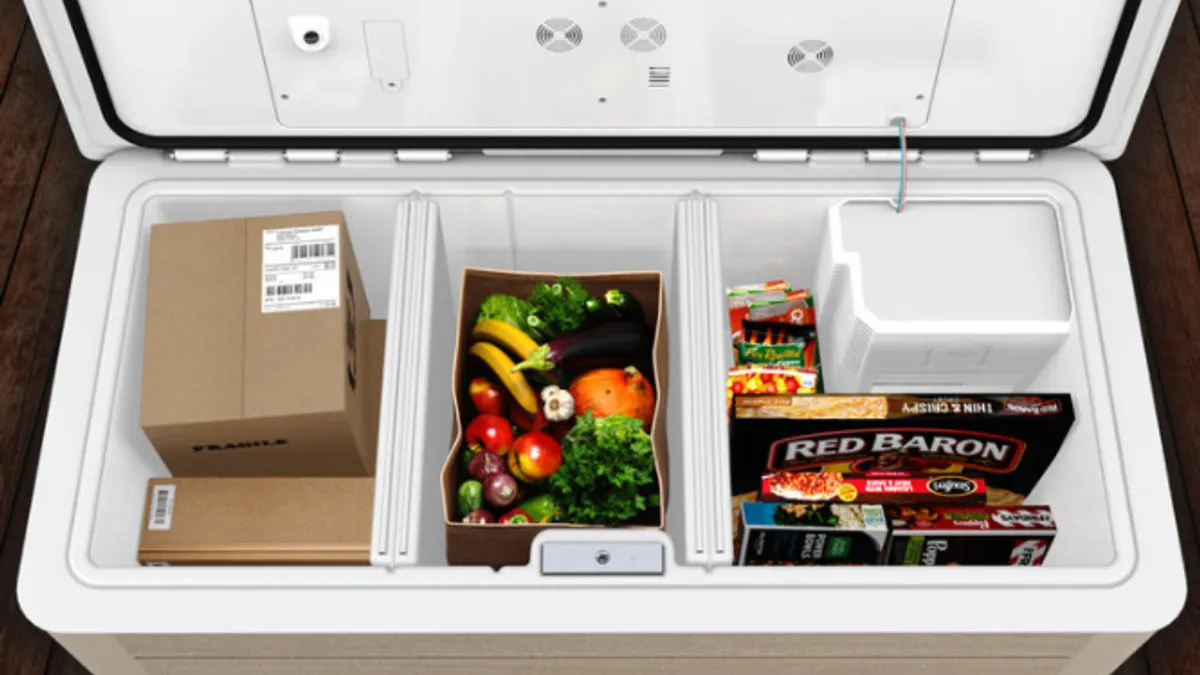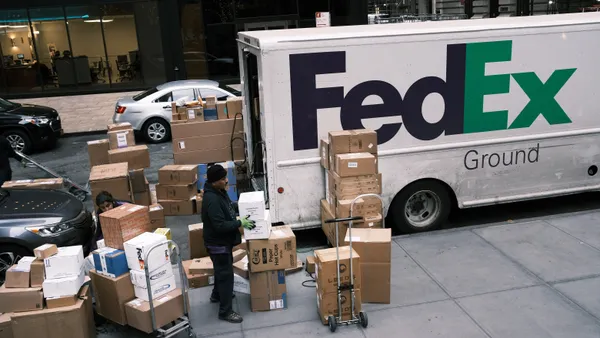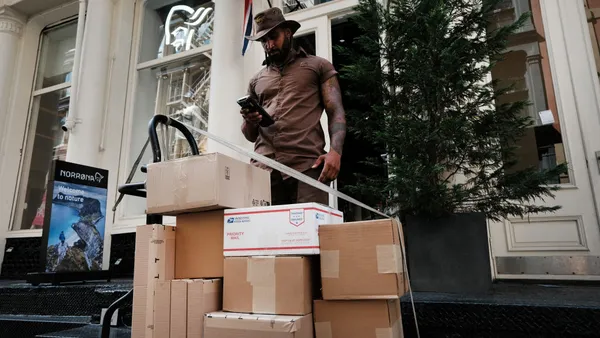Dive Brief:
- Walmart plans to begin testing unattended, temperature-controlled boxes designed to hold groceries outside delivery customers' residences in its hometown of Bentonville, Arkansas, this spring, the retailer announced in a blog post Tuesday.
- The secure receptacles, developed by HomeValet, are equipped with three separate zones intended to keep frozen, refrigerated and pantry items at optimal temperatures. The boxes electronically unlock when a delivery provider arrives with an order.
- Although store pickup has been Walmart's main focus to date in e-commerce, the retailer is developing new services and innovations to meet growing demand for home delivery. The company is also testing in-home delivery.
Dive Insight:
Bridging the distance between customer's homes and facilities where items are stored — the proverbial "last mile" — has long posed a challenge for grocers. Beyond contending with the costs and logistical issues that accompany the process of picking and transporting goods, food retailers also have to worry that products might spoil if a consumer isn't home to receive and immediately place perishables into the freezer or refrigerator.
HomeValet is looking to solve those problems with its automated food-storage device, which the company calls a "smart box." The units work in tandem with an app that provides updates about the temperature of the interior compartments and alerts customers when an order is delivered.
In addition to being able to maintain the cold chain, the box uses ultraviolet-C light to control mold and mildew and disinfect items after they are placed inside it. The box also uses the light to cleanse exposed surfaces after a customer removes the items.
Light in the UV-C range is able to kill pathogens including the virus that causes COVID-19, according to research published by the American Journal of Infection Control.
According to HomeValet, customers are responsible for items after they are delivered. The device, which runs on a standard household current, is equipped with a backup battery that the company says can power it for as long as 36 hours.
HomeValet's box is in some ways similar to the temperature-controlled pickup lockers that are making their way into supermarkets. These devices also allow people to retrieve items without interacting with another person and feature adjustable refrigeration systems that allow items to be kept at different temperatures.
Walmart, which last year launched its Walmart+ premium membership service offering free delivery, among other perks, for $98 a year, is also testing in-home delivery in several cities. That pilot, which kicked off in 2019, relies on home access via smart locks or smart garage kits, and employees can place groceries inside customers' refrigerators. The service is currently operating in Pittsburgh, Kansas City; Vero Beach, Florida; and West Palm Beach, Florida, though only customers in Pittsburgh are currently receiving deliveries in their kitchen due to the pandemic, CNBC reported.
Tom Ward, senior vice president of customer product for Walmart U.S., noted in the blog post that while the boxes from HomeValet could allow deliveries to be made around the clock, the retailer does not currently intend to do so. "While we don't have plans to do 24/7 delivery today, it certainly has a nice ring to it," Ward wrote.
















